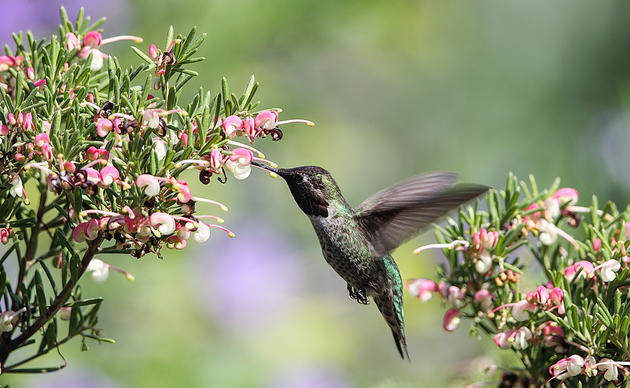Audubon California, several local Audubon chapters and partnering organizations recently asked Sen. Barbara Boxer to push for Senate ratification of the Agreement for the Conservation of Albatrosses and Petrels (ACAP), an international treaty aimed at protecting some of our planet’s most imperiled species of birds. Boxer's help is being sought because of her key position as chair of the Senate Environment and Public Works Committee as well as her service on the Foreign Relations Committee, making her ideally situated to stimulate real action on this issue in the Senate. Partnering organizations include the Center for Biological Diversity, Defenders of Wildlife, the Ocean Conservancy and many others.
The fundamental goal of ACAP is to prevent population decline through the implementation of an Action Plan comprising research, monitoring and conservation measures such as reduction of incidental mortality in fisheries and maintenance of habitats. Nineteen of 22 albatross species are currently listed as vulnerable to extinction under international criteria. Eight of these are known to occur on the waters of the United States of America and are protected under the U.S. Migratory Bird Treaty Act . Three of these species occur in California waters, including the federally endangered Short-tailed Albatross, the Black-footed Albatross (which is a candidate for federal listing), and the Laysan Albatross, included on the list of the U.S. Fish & Wildlife Service’s Species of Special Concern.
Albatrosses and petrels have large ranges often spanning the jurisdiction of many different countries. For example, the Laysan Albatross can be found throughout the North Pacific using the waters of the California, Canada, Japan, and Mexico. Primary threats to these species include mortality as a result of interactions with fisheries, predation or nest loss as a result of alien species introduced to breeding islands, and exposure to contaminants. ACAP is the foremost international Agreement developing collaboration to reduce these threats and ensure the future existence of albatross and petrel species.
The United States has been a leader in the protection of seabirds through reducing seabird bycatch, protecting and restoring breeding sites, and maintaining populations in general. Joining ACAP provides an important opportunity for the U.S. to demonstrate its commitment to seabirds on a global scale and join like-minded nations in seabird conservation efforts which will benefit U.S. species in the many areas where they are at risk outside the US Exclusive Economic Zone. The provisions of ACAP are consistent with current U.S. activities, including efforts at home and abroad.
Since opening for signatures in 2001, eleven countries are now parties to ACAP including Australia, Brazil, Chile, France, New Zealand, Peru, United Kingdom, Spain, Ecuador, South Africa, and Argentina. It is urgently important for the United States to become a party to this important Agreement as soon as possible.
By Garrison Frost
Monthly Giving
Our monthly giving program offers the peace of mind that you’re doing your part every day.




